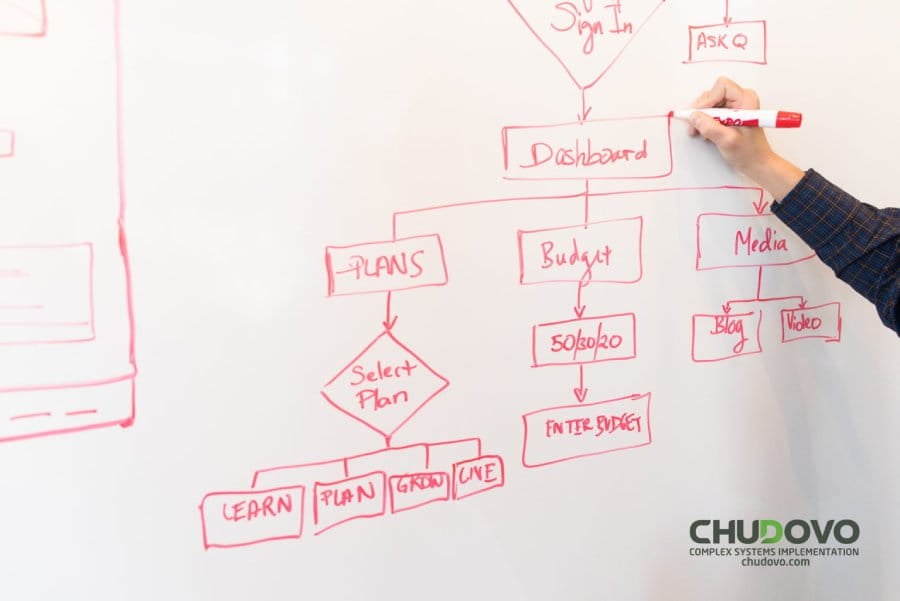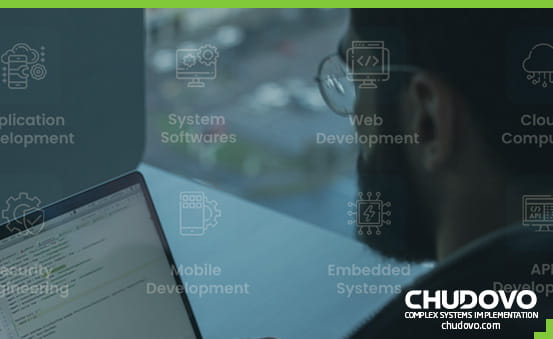Main Enterprise Software Development Methodologies to Win Success
Enterprise software development is increasing the digitalization of everyday business tasks and processes. From accounting, inventory, and customer management, to logistics, businesses are letting computers do the hard work through custom software development to address customer needs and achieve business goals.
Enterprises engage in custom software development to provide a scalable, functional, and user-friendly product and aim to do so using a suitable enterprise software development methodology. If you want to know about the enterprise software development methodology to use for your project, then continue reading.
In this article, we’ll start by defining software development methodology, then provide you with some considerations you need to make before deciding on a development methodology to develop your product. We’ll then list and explain the top enterprise software development methodologies available and, finally, inform you about the dangers of choosing the wrong software development methodology.
Table of Contents
Enterprise Software Development Methodologies Overview
In software development, there’s a process called the product development life cycle, where a software development team designs and builds a new product from scratch or overhauls an existing product. All development teams go through all the steps, but it’s the process or order in which they’re done that differs. This process or order of development steps is referred to as an enterprise software development methodology for businesses or simply a software development methodology in general.
What Is Enterprise Software Development Methodology?
To be clear, enterprise software development methodology is a combination of steps in the software development lifecycle in different techniques and formats that results in efficient software development within the available time frame. While some basic types exist, there are more than ten methodologies for developing enterprise software.
The most popular ones are V-Shaped, Agile, Waterfall, DevOps, and linear. But simply adopting software development methodologies just because it’s popular is not the ideal route. There are several factors involved in deciding what the most productive enterprise software development methodology for your project would be, and we’ll discuss them in the next section.
Factors to consider before choosing an enterprise development methodology
There’s no one way to do this, but the right mix of the proper considerations can help you make the best decisions for the suitable enterprise software development methodology. Take cognizance of the following factors:
Project requirement
Every project isn’t the same, no matter how similar. You must think of this current project’s specific requirements for functionality and software, and system design, among other requirements your project may have. Before choosing an enterprise software development methodology, you’ll need to define this as clearly as possible to make the right estimate.
The end product in view
Having an end goal in mind is key to understanding other parts of the project. At the beginning stage, you should already have a picture, even a blurry one, of how your final product will look, feel, and perform in the hand of your target user. The type of enterprise software development methodology you choose can affect how your final product will turn out.
Experience the project development team has with the methodology
Enterprises will hit many snags if the development team plans to test their abilities by adopting a new and untested methodology for your project. Usually, people find it easier to achieve a task when they have experience using the required methods. Thus, it would help if inquireduire from the development team about their experience with the software development methodology they currently use or are recommending for your project.
Feedback for previous products
For you, this might not be your first rodeo in software development. If you have successfully built and launched a product, you’ll have project development notes and documentation you can review to see the results from the enterprise software development methodologies applied for previous projects.
If it’s a good report and you’re now building a similar product, you might consider using the same development methodology for the new one. If not, then conduct your research on another type of development method that might be best suited to your new project.
Size of the development project
There are some methodologies that you cannot use for larger projects, and in the same way, some enterprise software development methodologies only shine through in mid-level or small project sizes. When selecting an enterprise software development methodology, keep your project size in mind. If you don’t yet know your project size, then you have some fact-finding and business-level soul-searching to do for your project.

What Are The Top Enterprise Software Development Methodologies?
Among the top enterprise software development methodologies, the primary or parent methods are the Waterfall methodology and Agile methodology. Other methodologies are an offshoot of these two or are similar to them because development teams, over time, found that these two didn’t quite fit all the time. So they created variations to suit their needs and products.
Now that’s clear, let’s move to our top enterprise development software methodologies.
- Waterfall methodology
- Agile methodology
- DevOps methodology
Waterfall methodology
Developed between the late 1970s and early 1980a, the Waterfall methodology adopts a linear approach to software development, with each step broken down into specific milestones that must be strictly adhered to one after the other. When using Waterfall, developers cannot advance to the next phase of development without concluding the current phase they’re in.
Waterfall methodology takes careful and detailed planning and execution to pull off a successful software development project. Once you get the hang of the required detail and attention, you’ll have a product that meets your goals. Inadequate planning, however, will cause you to throw out hard-written lines of code due to mistakes and bugs.
Waterfall happens in five phases; software and system requirement, system design, coding, implementation, and evaluation, functional unit testing phase, and deployment, implementation, and update. Some other methodologies, like the V-Shaped methodology, borrow some features of the Waterfall.
The waterfall methodology might be old, but it’s still a relevant methodology in our time due to its easy-to-understand logical sequence. Other reasons why development teams might choose to go with the waterfall methodology include the following:
- Facilitates clearer and better communication between teammates. However, if communication isn’t smooth in one area, this jeopardizes the entire project.
- Waterfall methodology makes it easy to work with an end goal in mind. Every stage is painstakingly planned out with the end product in view. It helps your team remember throughout the process and stay focused on the end goal.
Agile Methodology
Agile methodology focuses on using small and sharp steps, implementing iteration, and prioritizing the product and customer collaboration to produce a fully functional product quickly. Agile methodology upholds four crucial values:
- Uphold customer collaboration over contract negotiation
- It’s more important to respond to change rather than follow a set plan
- Individuals and interactions are more crucial than processes and tools
- Focus on functional software rather than a detailed documentation
In agile methodology, the development team responds quickly to changes and has short daily stand-up meetings where every team member provides updates on their work. Scrum and Kanban are other enterprise software development methodologies derived from the Agile process.

Certified engineers
Convenient rates
Fast start
Profitable conditions
Agreement with
EU company
English and German
speaking engineers
The agile methodology follows these six major steps: conceptualization, planning, iteration (includes the major workflow tasks), repetition (repeat the workflow tasks until the project is complete), production, release, and feedback, and finally, overhaul or retirement. The drawback to following these Agile processes is that the teams risk ignoring documentation and inability to predict the budget, and every issue raised requires immediate attention.
The flexibility of these agile steps is what most development teams enjoy. Other reasons why development teams prefer agile methodology for enterprise software development include the following:
- Reduced risk
- Increased customer satisfaction
- Better product quality
- Quick product delivery
DevOps Methodology
The core of the DevOps methodology is a collaboration between the development team and the IT operations team. These teams usually work separately in other methodologies, but DevOps, which means development and operations, brings them together to work as a team from the planning, implementation, design phase, testing phase, release, and feedback.
Just like the Agile methodology, DevOps maintains constant and efficient communication between team members, enabling them to design, build, and release the product within a short time. It also prioritizes the product rather than the processes attached to the end goal. Unfortunately, with this fixation on the product, teams can quickly lose focus on the end goal.
Here are some reasons why development teams prefer to apply DevOps methodology to their custom software development system:
- DevOps helps teams to maintain focus on creating a functional software solution for the customer rather than a mind-blowing software in the end
- Applies process automation to speed up the process
- Minimizes expenses
- Efficient and reliable problem-solving
- Fosters collaboration, teamwork, and a stable workplace.
Conclusion
With the wrong methodology, you might waste money and lines of code, rushing toward a deadline and delivering an unfinished or low-quality product. Therefore, to choose the proper methodology, consider your project size, previous experience, and requirements.
Agile, DevOps, and Waterfall are top methodologies. But if you don’t find what you’re looking for, you can always develop your own methodology with existing methods as inspiration.




